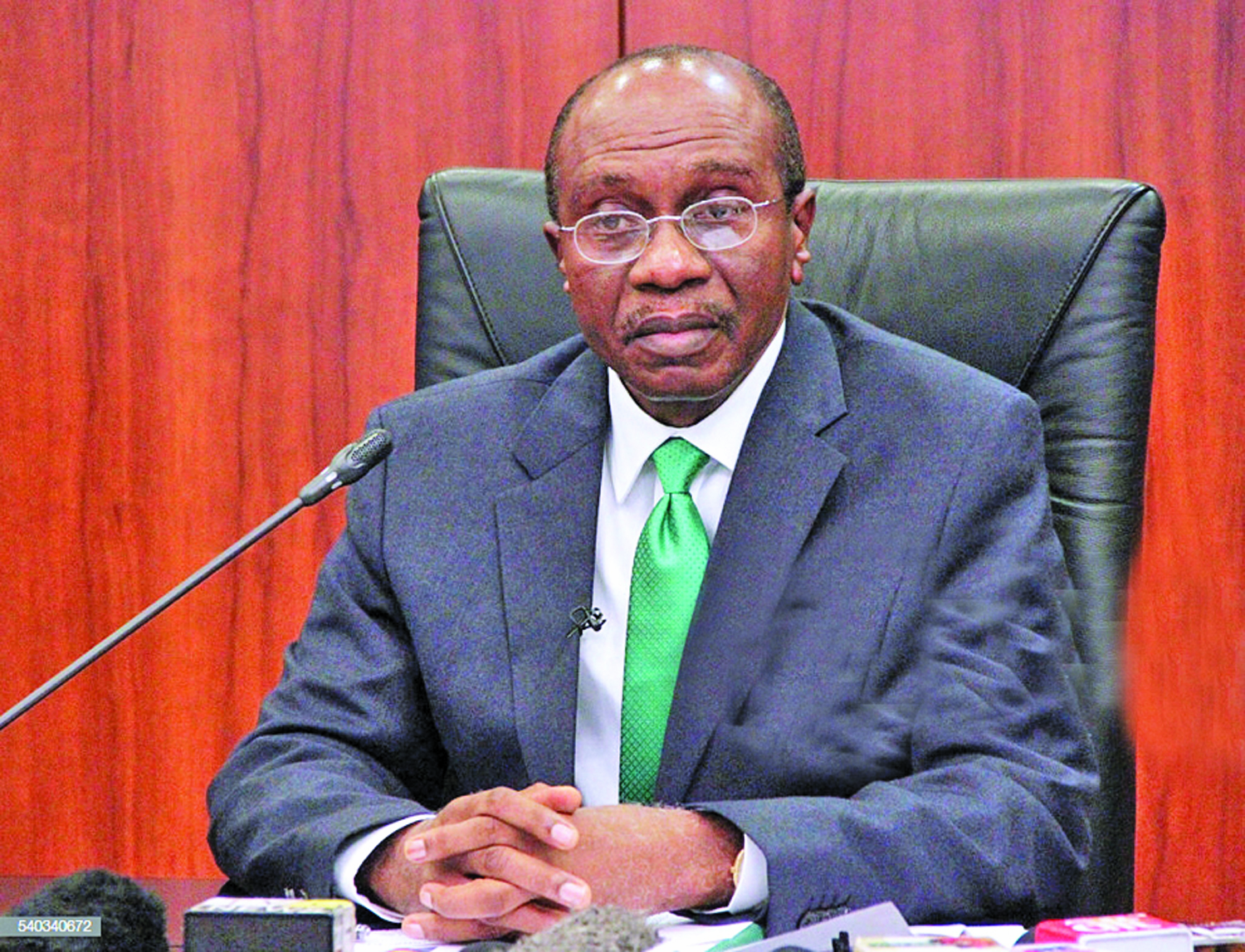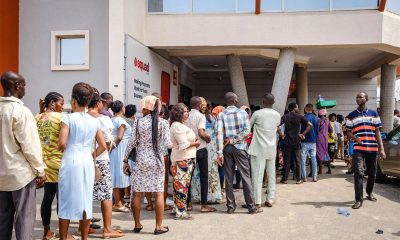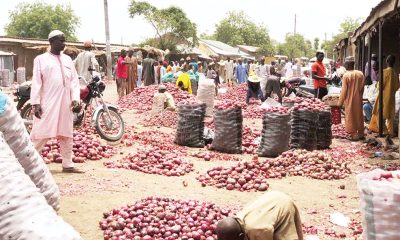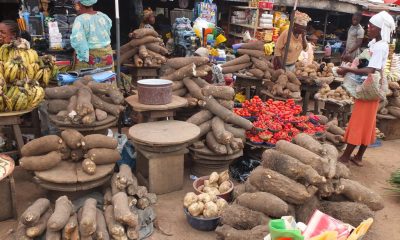Business
MPC meets today, inflation, rising unemployment in focus

Members of the Central Bank of Nigeria’s (CBN) Monetary Policy Committee (MPC) will today begin their two-day meeting in Abuja amid concerns of rising inflationary pressure and worsening unemployment.
The committee is expected to review the domestic and external macroeconomic conditions and financial markets developments since its last meeting in January and provide forward guidance on how it intends to balance the competing goals of price and exchange rate stability.
Commenting on today’s meeting, analysts at Cordros Capital Limited noted that the persistent increase in inflation was primarily due to the combined effects of ongoing security challenges in the country, forex liquidity challenges, and poor distribution networks.
“Although a dovish monetary policy contradicts rising inflationary pressures, we expect the committee to reiterate that a hike in interest rate will oppose its current growth mandate, given the adverse impact on the rising cost of borrowing for households, businesses and the government,” the Lagos-based firm stated.
Also, analysts at Greenwich Merchant Bank envisaged that the committee should back its pro-growth stance by holding the key parameters at their current levels.
“On the domestic scene, the committee would assess the economy’s surprise exit from its recession (thanks to the non-oil sector growth of 1.7 per cent), along with the optimistic outlook for 2021.
The analysts noted that “higher oil prices, which have returned to pre-pandemic levels sustained inflationary pressures (inflation rate rose to 17.3 per cent in February, from 16.5 per cent in January), higher unemployment readings (unemployment rate settled at 33.3 per cent in Q4:2020, up from 27.1 per cent in Q2:2020), pressure on external reserves from ongoing FX difficulties, and the country’s ballooning debt levels will all be factored in.”
They pointed out that overall, the policy-setting committee remains faced with three options: to tighten, hold, or lower the key policy rate.
They said: “Although, we opine a tightening stance could drive back capital flows to help boost external reserves, stem inflationary pressures and bring in the much-needed price stability, it could also distort the progress achieved so far in supporting growth.
“On the other side, while a loosening stance could hasten an economic recovery, helped by the lower credit environment, it could also worsen the real rate of returns and persistent price pressures.
“Against this backdrop, we see the committee embracing its current stance. We remain conscious of the MPR’s weak transmission effect, which supports the bank’s use of unorthodox policies, as assets remain unanchored by the policy rate.
“Case in point, the steep rise in Open Market Operation (OMO) yields appears to have set the tone of fixed income rates, pushing up stop rates at the Primary Market Auctions (PMAs) for T-bills and the bonds to 6.8 per cent (average 364-day) and 11.8 per cent, from 1.2 per cent (average 364-day) and seven per cent respectively.”
It added that a possible increase in the MPR just might suggest that authorities are prioritising efforts to control inflation over economic growth.
Speaking in a chat with THISDAY, Managing Director, Financial Derivatives Company Limited, Mr. Bismarck Rewane, said he doesn’t expect any change in the monetary policy instrument.
“Unemployment is a fiscal lagging indicator that you do not use monetary policy tools to address; it is inflation that is a big problem.
“I don’t think the MPC will adjust any of the tools because it is a very complex situation. I won’t be surprised that they do, but I am not expecting anything,” Rewane added.
Also, Head of Research, United Capital Limited, Mr. Wale Olusi, anticipates that the MPC would hold interest rate, but would continue to tighten using its open market operations.
According to him, leaving the interest rate at the current level would encourage economic growth. At the last meeting in January, the MPC left all the monetary policy tools unchanged.
The Monetary Policy Rate (MPR) was left at 11.5 per cent; cash reserve ratio (CRR) at 27.5 per cent and asymmetric corridor at +100/-700bps around the MPR, and the liquidity ratio at 30 per cent.
Surprisingly, the domestic economy had exited the COVID-19 induced recession in the fourth quarter of 2020 with real Gross Domestic Product (GDP) growth growing marginally by 0.11 per cent year-on-year, compared with a contraction by 3.62 per cent recorded in the previous quarter.
Nevertheless, the Consumer Price Index (CPI), which measures inflation increased by 17.33 per cent (year-on-year) in February 2021, compared to16.47 per cent in the preceding month, according to recent data released by the National Bureau of Statistics (NBS). The composite food index had risen by 21.79 per cent in February compared to 20.57 per cent in January. Also, Nigeria’s unemployment rate rose to 33.3 per cent in the fourth quarter of 2020 (Q4 2020) compared to 27.1 per cent in Q2, according to a recent report released by the NBS. That implied that 23.18 million of the country’s labour force either did nothing or worked for less than 20 hours a week, making them unemployed by the country’s definition of unemployment.
-THISDAY
Railway
Lagos Rail Mass Transit part of FG free train ride – NRC

Lagos Rail Mass Transit part of FG free train ride – NRC
The Nigerian Railway Corporation (NRC) has disclosed that the Lagos Rail Mass Transit (LRMT) trains are included in the Federal Government’s free train ride initiative for the Christmas and New Year celebrations.
The LRMT, which currently includes the Phase 1 Blue Line Rail and the Phase 1 of the Red Line Rail, operates under the Lagos Metropolitan Area Transport Authority (LAMATA).
This announcement was made by Ben Iloanusi, the Acting Managing Director of the NRC, during an interview on NTA News TV on Friday, following the launch of the initiative earlier that day.
While Iloanusi stated that Phase 1 of both the Blue Line and Red Line Rail projects are part of the program, LAMATA has yet to confirm this inclusion.
READ ALSO:
- Nigeria denies alleged plot to destabilise Niger Republic
- Navy arrests 19 Nigerians attempting to reach Europe by hiding on ship
- Troops arrest four Ambazonian rebels in Taraba
Iloanusi outlined the other routes benefiting from the scheme, which include the Lagos-Ibadan Train Service, Kaduna-Abuja Train Service, Warri-Itakpe Train Service, Port Harcourt-Aba Train Service, and the Bola Ahmed Tinubu Mass Transit in Lagos. Notably, little was previously known about the Bola Ahmed Tinubu Mass Transit service until this disclosure.
“Let me mention the routes where this free train service is happening. We have the Lagos-Ibadan Train Service, we have the Kaduna-Abuja Train Service, we have the Warri-Itakpe Train Service, we have the Lagos Rail Mass Transit trains, we have the Port Harcourt-Aba Train Service, and we have what we call the Bola Ahmed Tinubu Mass Transit, which is also in Lagos,” he stated.
Iloanusi provided operational updates, stating that passengers nationwide can access free tickets online or, for those unable to do so, at train stations where they will be profiled and validated.
He noted that passengers using NRC-managed services (excluding the Lagos Rail Mass Transit) should reserve tickets via the official website, www.nrc.gov.ng, with a valid ID required. He also advised travelers to plan, arrive on time, and bring valid identification.
Lagos Rail Mass Transit part of FG free train ride – NRC
Business
NNPC denies claim of Port Harcourt refinery shutdown

NNPC denies claim of Port Harcourt refinery shutdown
The Nigerian National Petroleum Company Limited (NNPCL) has denied claims in media reports that the newly refurbished Port Harcourt refinery has shut down.
The national oil company denied the claim in a press release issued by its Chief Corporate Communications Officer, Olufemi Soneye, on Saturday.
Soneye said the claim was false and urged Nigerians to disregard it. He stressed that the Port-Harcourt Refinery is fully operational.
READ ALSO:
- Like Ibadan, stampede claim 10 lives for Abuja Catholic church, 17 in Anambra
- Marketers react after NNPCL slashes petrol price to N899 per litre
- Electricity: We installed 184,507 meters, issued 50 licences in Q3, says FG
The statement read, “The attention of the Nigerian National Petroleum Company Limited (NNPC Ltd.) has been drawn to reports in a section of the media alleging that the Old Port Harcourt Refinery which was re-streamed two months ago has been shut down.
“We wish to clarify that such reports are totally false as the refinery is fully operational as verified a few days ago by former Group Managing Directors of NNPC.”
He noted that preparation for the day’s loading operation is currently ongoing, and added that claims of the shutdown are “figments of the imagination of those who want to create artificial scarcity and rip-off Nigerians.”
NNPC denies claim of Port Harcourt refinery shutdown
Business
CBN permits BDCs to buy up to $25,000 FX weekly from NFEM

CBN permits BDCs to buy up to $25,000 FX weekly from NFEM
The Central Bank of Nigeria (CBN) has granted Bureau de Change (BDC) operators temporary permission to purchase up to $25,000 weekly in foreign exchange (FX) from the Nigerian Foreign Exchange Market (NFEM).
The Central Bank of Nigeria (CBN) has granted Bureau de Change (BDC) operators temporary permission to purchase up to $25,000 weekly in foreign exchange (FX) from the Nigerian Foreign Exchange Market (NFEM).
This move, detailed in a circular dated December 19, 2024, is designed to meet seasonal retail demand for FX during the holiday period.
The circular was signed by T.G. Allu, on behalf of the Acting Director of the Trade and Exchange Department.
The arrangement will be in effect from December 19, 2024, to January 30, 2025.
Under the directive, BDCs may purchase FX from a single Authorized Dealer of their choice, provided they fully fund their accounts before accessing the market.
Transactions to occur at the prevailing NFEM rate
The transactions will occur at the prevailing NFEM rate, and BDCs are required to adhere to a maximum 1% spread when pricing FX for retail end-users.
READ ALSO:
- Badenoch’s negative portrayal of Nigeria Police unfair-PCRC
- Bitcoin price crashes to $95,000 as market continues to react to Federal rate cuts
- Bauchi high court dismisses blasphemy, cybercrime charges against Rhoda Jatau
All transactions conducted under this scheme must be reported to the CBN’s Trade and Exchange Department.
The circular read in part:
“In order to meet expected seasonal demand for foreign exchange, the CBN is allowing a temporary access for all existing BDCs to the NFEM for the purchase of FX from Authorised Dealers, subject to a weekly cap of USD 25,000.00 (Twenty-five thousand dollars only).
This window will be open between December 19, 2024 to January 30, 2025.
“BDC operators can purchase FX under this arrangement from only one Authorized Dealer of their choice and will be required to fully fund their account before accessing the market at the prevailing NFEM rate. All transactions with BDCs should be reported to the Trade and Exchange department, and a maximum spread of 1% is allowed on the pricing offered by BDCs to retail end-users.”
The CBN assured the general public that PTA (Personal Travel Allowance) and BTA (Business Travel Allowance) remain available through banks for legitimate travel and business needs.”
These transactions are to be conducted at “market-determined exchange rates” within the NFEM framework.
This initiative reflects the CBN’s strategy to stabilize the FX market and manage seasonal surges in demand.
CBN permits BDCs to buy up to $25,000 FX weekly from NFEM
-

 Railway16 hours ago
Railway16 hours agoLagos Rail Mass Transit part of FG free train ride – NRC
-

 metro2 days ago
metro2 days agoCourt stops customs from seizing imported rice in open market
-

 metro3 days ago
metro3 days agoFG transfers electricity market regulatory oversight in Lagos to LASERC
-

 metro2 days ago
metro2 days agoIbadan stampede: Tinubu orders probe as death toll hits 40
-

 metro2 days ago
metro2 days agoAfe Babalola: Court grants Dele Farotimi bail, barred from media interviews
-

 metro17 hours ago
metro17 hours agoNIMC warns against extortion, reaffirms free NIN enrollment
-

 metro1 day ago
metro1 day agoIbadan stampede: Ooni reacts after arrest of ex-wife
-

 News2 days ago
News2 days agoAdebayo Ogunlesi, 2 other Nigerians make Forbes 50 wealthiest Black Americans list 2024













